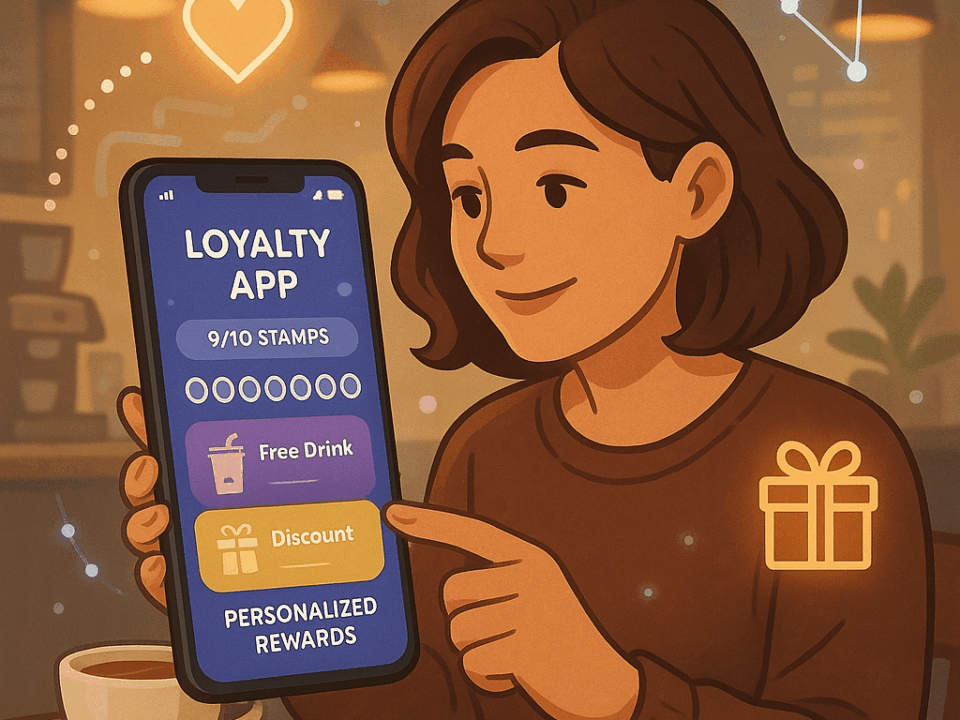
How AI Can Validate Your Business Model Before You Launch
December 31, 2024
How AI Can Be Integrated into Traditional Business Strategies to Enhance Decision-Making Processes
January 12, 2025Tokenized loyalty refers to the use of blockchain technology and digital tokens in traditional loyalty programs to improve their efficiency, security, and overall user experience. This innovative approach involves brands creating digital tokens that customers can earn through various engagements, such as making purchases, referring others, or attending events. These tokens, often built on blockchain platforms, can represent points, rewards, or even virtual currencies that customers can exchange for goods, services, or discounts within a specific ecosystem.
Tokenized loyalty programs, supported by technologies like smart contracts, ensure transparency and automate the management of customer rewards. These programs simplify the experience for consumers and enable businesses to track and analyze customer behavior more effectively, leading to improved customer insights and engagement strategies.
Benefits for Consumers
- More Flexibility: Tokenized loyalty can let consumers use their tokens across different brands or within an entire ecosystem, which is a wide choice compared to traditional loyalty points that might be restricted in use to only one retailer.
- Improved Redemption Rates: Since tokens can be exchanged or traded, consumers are likely to face fewer hurdles in redeeming rewards. This leads to increased satisfaction and loyalty since customers see tangible benefits from their interactions.
- Transparency: Blockchain technology ensures that all the records of transactions are clear and indelible, thus enhancing transparency. Consumers can track their earned tokens with ease, understand their value, and know they will not expire suddenly.
- Security and Safety: Enhanced security brought through tokenization based on loyalty blockchain reduces fraudulent opportunities in the entire channel and, accordingly, helps maintain customers’ sensitive data intact.
- Engagement Opportunities: Companies can create gamified experiences where consumers earn tokens in exchange for taking part in a challenge or a campaign, fostering deeper engagement with the brand.
Benefits for Businesses
- Data-driven insights: Tokenized systems help in providing businesses with detailed data of every consumer interaction or preference, enabling them to work on personalized marketing and customer retention strategies.
- Customer Retention: Companies experience improved customer retention rates through engaging and flexible loyalty experiences, leading to reduced churn and an increase in lifetime value.
- Cost Efficiency: Most traditional loyalty programs are very expensive in their management and operation. Tokenization is going to ease these processes by reducing administrative functions and rewarding.
- Broader Collaboration: Tokenized loyalty programs can enable collaboration between brands whereby cross-promotion can be offered to consumers for earning tokens by patronizing affiliated businesses, hence reaching an expanded customer base across all participants.
- Innovative Financing Options: Token sale mechanisms can also be used for fundraising by a firm, which can enhance customer engagement by creating a sort of investment-like relationship with loyal consumers.
Conclusion
Tokenized loyalty is a disruptive innovation that empowers blockchain technology to offer better experiences for consumers, while simultaneously giving actionable insights and efficiency advantages to businesses. As brands increasingly strive to develop more personal relationships with their customers, tokenized loyalty systems could be one of the mainstream ways of retaining customers in an overcrowded marketplace.
———–
References
- Boukis, A., The effect of tokenized rewards on customer loyalty programs. Annals of Tourism Research, 2024. 109: p. 103851.
- Santos, A.F., J. Marinho, and J. Bernardino, Blockchain-Based Loyalty Management System. Future Internet, 2023. 15(5): p. 161.
- Dyer, J.H. and H. Singh, The relational view: Cooperative strategy and sources of interorganizational competitive advantage. Academy of management review, 1998. 23(4): p. 660-679.
- Lim, Y.H., et al. Blockchain Technologies in E-commerce: Social Shopping and Loyalty Program Applications. in Social Computing and Social Media. Communication and Social Communities. 2019. Cham: Springer International Publishing.



